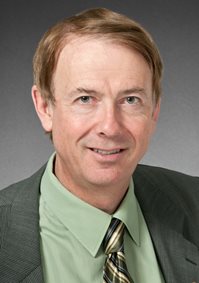Ontario physics professor Robert Mann calls Christians to seek new ways to build bridges of trust with the scientific community
 A large part of the ongoing dialogue between science and Christian faith has historically been theological. Ever since the scientific method emerged within the crucible of Christendom, there has been an ongoing conversation as to how the results of science can be squared with the perspective of faith. How can we understand creation in light of evolution? How can we make sense of miracles? What is the role of scriptural authority in the face of the scientific method?
A large part of the ongoing dialogue between science and Christian faith has historically been theological. Ever since the scientific method emerged within the crucible of Christendom, there has been an ongoing conversation as to how the results of science can be squared with the perspective of faith. How can we understand creation in light of evolution? How can we make sense of miracles? What is the role of scriptural authority in the face of the scientific method?
Today the issues take on a different tone and character. In the post-pandemic world, many people are asking new questions. How much faith should we place in science? How much trust should we place in scientists?
It is distressing to those of us in scientific professions that these questions are being asked. After all, we must place our trust in science – and scientists – to a considerable degree in order to function in modern society. Examples abound. Engineers who build and maintain our roads and highways. Farmers who employ technological innovation to become increasingly more efficient in providing our food. Doctors who deliver state-of-the-art medical care. Computational technology that allows us to instantly find information that once took years to accumulate.
The new frontiers in science and faith have much more to do with how the results of science permeate our lives and societies. We develop technology – but technology changes us.
To the frustration we experience with a car that doesn’t start, to our impatience with a slow internet connection, to the voice mail (or voice jail) that keeps us from talking to humans, our technology gives us much to complain about. Yet its benefits are manifold – longer and healthier lifespans, worldwide travel at low prices, regular and instant communication with family and friends anywhere.
How do we live a life of faith in a rapidly changing technological world? For Christians, the answer is straightforwardly contained in the two most important commandments: Love God with all your heart, soul, mind and strength, and Love neighbour as yourself. But the details are what make it challenging and ambiguous.
Science and technology are creating a future that will accomplish things that previously were thought only God could do. Advances in computing, agriculture, communications, artificial intelligence, genomes with CRISPR editing, automobiles, planes, robotics, data mining – are all in the process of transforming society. From the comfort of our homes to our planetary environment, profound changes will be realized in every aspect of life. How can our living faith integrate into this world of increasing technological change? And are scientists shifty adversaries or trustworthy allies in this journey?
The challenges are both broad and deep. With the onset of ChatGPT, we are on the cusp of a new era in artificial intelligence that is perhaps comparable to the advent of the printing press. It can bring us a utopian future in which new antibiotics can be developed to combat viruses while at the same time being used to violate human rights and privacy in hitherto unforeseen ways.
Our technological innovations that have enabled us to prolong life have come in conjunction with the introduction of medical assistance in dying (MAiD), leading to new issues in bioethics that are of deep concern. The promotion of MAiD by those favouring personal autonomy and control has placed some of the most vulnerable in society in a position where they have to justify living.
Our climate is undergoing changes at a rate never before experienced in human history, and we will have to decide the extent to which technology is part of the problem or part of the solution.
As one who is both a career research scientist and long-standing professing Christian, it is my sincere prayer that people of faith and Christian churches seek new ways to build bridges of trust with the scientific community. The issues are simply too important for Christians to be left at the sidelines.
Robert Mann is editor in chief of the Canadian Journal of Physics and a professor of physics and applied mathematics at the University of Waterloo. He invites Faith Today readers to the University of Toronto Mississauga, July 28-31, for a conference called “Moving Forward Together: The Future of Science and Faith.” It will explore the intersection of science and faith across a broad range of frontiers, and it also celebrates the 50th anniversary of the Canadian Scientific & Christian Affiliation. Learn more in a previous post by Judith Toronchuk.